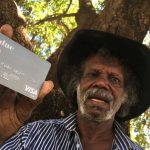Government’s Plan to Criminalise Cash Payments Has Been Defeated

When the Currency (Restrictions on the Use of Cash) Bill 2019 was introduced to Parliament last year, it faced it’s fair share of media headlines, backlash and criticism. To the relief of many, the law is now officially dead after failing to pass the senate.
The proposed laws
The laws proposed to create four federal offences relating to the use of cash, two of which apply regardless of whether an accused person was aware of any legal restrictions. Specifically, it would have made it a criminal offence to make cash payments over $10,000, punishable by a two-year jail term or a $25,000 fine.
But despite several amendments over as many months, the controversial bill did not pass in the senate, and has been shelved for now, in part, the Government says, because it’s current response to Covid-19 remains a priority.
This doesn’t mean that the bill won’t return in some form or another down the track.
Cashless economy is growing
Interestingly, the move towards non-cash payments has been fast-forwarded by the pandemic. When Covid-19 hit Australia earlier this year, retailers were quick to ‘ban cash’ for fear that physical contact with customers through exchanging notes and coins would transmit the virus, and Aussies were largely compliant, preferring to make card and phone, online and app payments instead.
About half-way through the year, money experts said that Covid-19 had sped up the digital banking revolution exponentially, with a report suggesting that Australia could be cashless within two years. Regulators, including the International Monetary Fund (IMF), have made no secret of their desire to be rid of cash, however no country has made the move to a completely cashless society just yet.
One of the concerns with the original bill was that while the government repeatedly said it was a necessary step towards lowering crime rates, and stamping out tax evasion and money laundering, along with other aspects of the ‘Black economy’ which costs Australia about $50 billion per year, others saw it as a disturbing attack on civil liberties.
Digital payments can be completely tracked and traced, which some would argue offers security, but it also means that every organisation you transact with has your payment information which means that you are actually more vulnerable to hackers.
Since the introduction of the bill was mooted, many experts have argued that the big time criminal syndicates have moved on from cash anyway and that for Australia to move to a cashless society, the growing sophistication of cybercrime and the need to have the resources to combat it, needed to be addressed first.
The Greens party, which was vehemently opposed to the bill, says that if the government is serious about stopping money laundering, then it should “bring forward legislation to make lawyers, accountants and real estate agents report to AUSTRAC, which was first promised in 2006. According to the Greens Party, Australia is now one of only six countries in the world not to have done this.
Essentially, this would require mandatory reporting of large cash purchases such as real estate, boats, expensive cars and jewellery and is considered to be a more effective way to detect possible illegal activity.
Certainly in recent years, we’ve seen that the big banks and casinos are actually the ones guilty of money laundering, and the most prolific tax evaders are also the large corporates, not ordinary, every day Australians.
Disadvantaging ordinary Australians
Another concern about moving so quickly towards a cashless society is that there are a large percentage of Australians – older people, homeless, mentally ill, technology-illiterate people, who still need the choice of cash.
In April this year, the Australian Banking Association (ABA) reported there were more than 500,000 customers who actively used a passbook account or transaction account with no linked debit card, meaning they are heavily reliant on cash.
And let’s not forget that Australia is a big country with wide open spaces. Making digital transactions means having reliable access to mobile or internet services which just doesn’t exist in some regional and remote areas. This means that those living in these areas would be disadvantaged.
What’s clear is that there are a number of issues that need to be addressed before Australia can move towards being a cashless society. However, while The Currency (Restrictions on the Use of Cash) Bill 2019 has been abandoned for now, it is entirely possible that it will face a revival after Australia recovers from the current pandemic-related recession.







